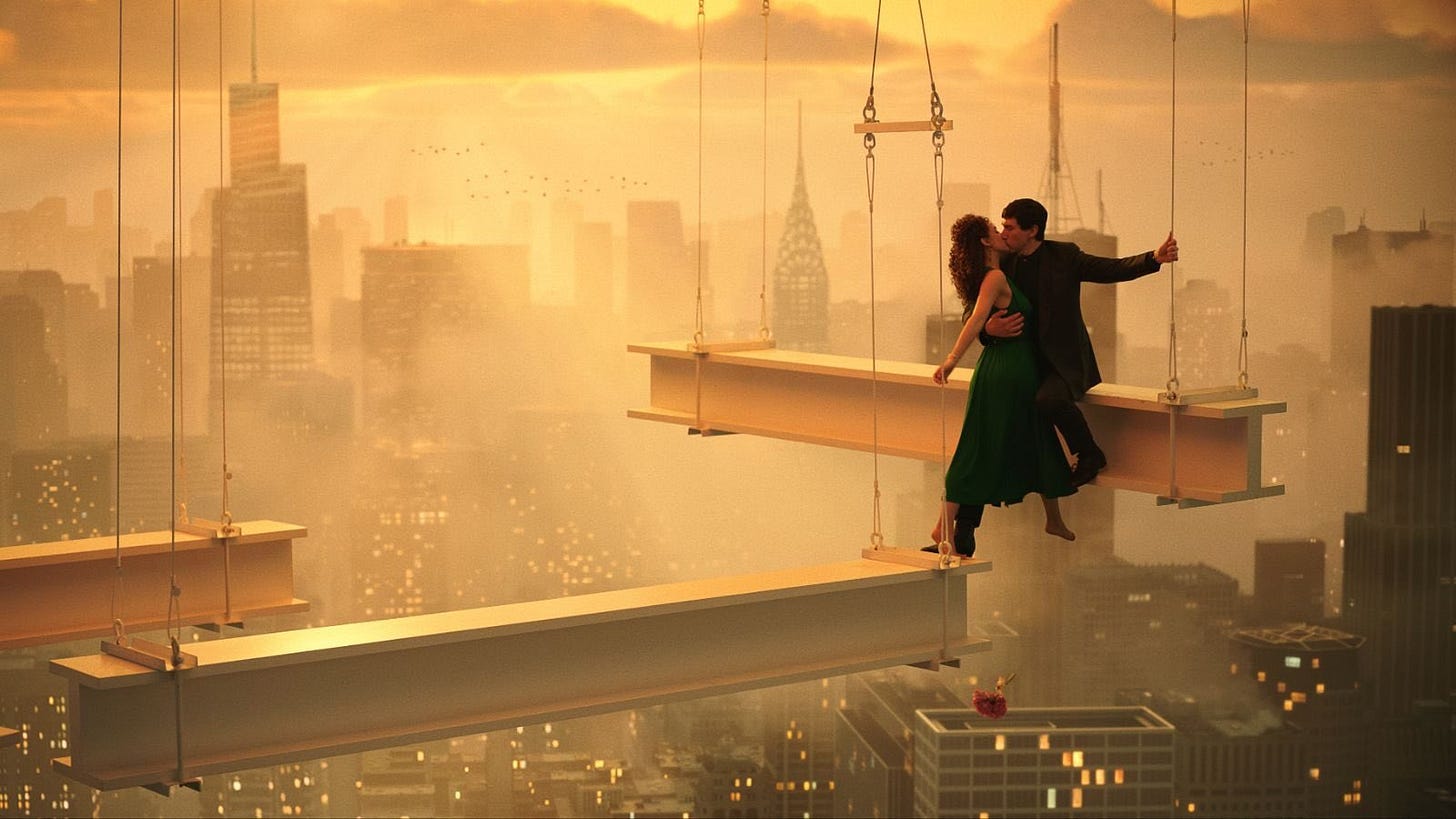Francis Ford Coppola’s Megalopolis is a grand gamble that prompts critical scrutiny of artistic ambition. This film, which has languished for over 40 years and undergone more than 300 rewrites, embodies a level of aspiration many would deem reckless. By sinking a staggering $120 million of his own money into this project—including selling off portions of his winery—Coppola appears to be wagering not just on a film, but on a delusional vision of cinema that feels increasingly far-fetched.
Megalopolis stands as a glaring testament to the pitfalls of unchecked ambition, veering dangerously into the realm of the cringe-worthy. The result reads less like a cohesive vision and more like a chaotic amalgamation of half-formed ideas. For a script that has supposedly undergone countless revisions, it feels like a shoddy first draft—one likely conceived during a late-night haze of overindulgence. It’s as if he got really stoned one night, scribbled a series of disjointed thoughts on a napkin, and declared, “Let’s turn this into a movie.”
What emerges is a jumbled mess, where ambition and pretentiousness collide in a cacophony of bewildering plotlines and laughable dialogue. Each scene seems to have been cobbled together without any real direction, leaving viewers adrift in a narrative that lacks coherence and focus. This is a film that desperately seeks to convey profound themes but instead delivers a disjointed experience, leaving audiences questioning whether it’s a serious commentary or merely a self-indulgent folly.
Set against a bewildering backdrop that clumsily merges ancient Rome with a dystopian New York, Megalopolis attempts—and spectacularly fails—to address class disparity through the misguided aspirations of architect Cesar Catilina (Adam Driver). Armed with the laughable notion of a substance he calls “Megalon” and the questionable ability to control time, his dream of a classless utopia unravels in a city that reflects the chaotic misfire of his own narrative. The film’s central conflict pits him against Mayor Franklyn Cicero (Giancarlo Esposito), a one-dimensional antagonist who embodies the very status quo Cesar pretends to upend, like a cardboard cutout of tyranny in a story desperately seeking depth.
The supporting cast adds to the disarray with characters that feel more like caricatures than actual people. Julia (Nathalie Emmanuel), the mayor's daughter, engages in a laughably contrived romance with her boss, Cesar, whose chemistry with her is as flat as the screenplay itself. Aubrey Plaza manages to inject some semblance of humor into the film, serving as its sole redeeming factor. Meanwhile, the rest of the cast struggles against a tide of cringe-inducing dialogue. Watching Driver and Esposito attempt to deliver their lines is akin to witnessing talented actors choke on their own material; their abilities feel wasted on a script so poorly crafted that even seasoned performers can’t elevate it.
The plot drifts aimlessly through a disjointed maze of half-baked ideas, with many threads leading nowhere or simply being abandoned. It feels as though critical sequences have been excised, leaving behind a chaotic collage of psychedelic visuals and pointless dream sequences that serve no real purpose. Coppola’s efforts to draw parallels between the fall of the Roman Empire and contemporary America only highlight the film’s incoherence, like trying to connect dots in a picture that has long since lost its shape.
Then there's the much-lauded attempt at interactivity, which feels more like a cheap distraction than an artistic endeavor. This desperate ploy resembles a magician’s flash of smoke—designed to dazzle and confuse rather than provide any genuine substance. Instead of enriching the experience, it clutters the narrative, created to spark curiosity and fill seats while ultimately leaving the audience feeling deflated, like a balloon that lost its air long before the festivities even began.
Megalopolis dazzles with its intricate costumes and opulent production design, but this visual feast does little to conceal the fundamental shortcomings of its storytelling. While the ambitious fusion of various eras may catch your eye, it ultimately serves as little more than a glossy veneer, distracting from the chaotic madness playing out on screen.
In the end, Megalopolis serves as a stark testament to Coppola’s unchecked artistic ego—a film that encapsulates all the pitfalls of misguided passion projects. It's painfully clear that no studio would dare to invest in such a bizarre vision, leaving audiences utterly bewildered by this catastrophic misfire. The result is a perplexing muddle that raises the unsettling question of whether it aims to deliver a profound statement or if it’s merely an exercise in pretentious nonsense.
So, if you dare to embark on this perplexing odyssey, grab a ticket—but brace yourself for an experience that’s as infuriatingly convoluted as it is unforgettable.




